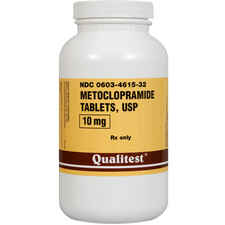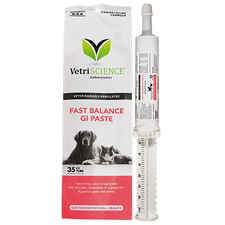How to Reduce Your Pet's Nausea
Doctor of Veterinary Medicine

While efforts are made to answer all questions as quickly as possible, if an immediate answer is required or if your pet is in need of urgent or emergency care, contact your pet's veterinarian immediately.
Doctor of Veterinary Medicine

You will receive an answer from Dr. Lindsay and our vet/tech team as soon as possible, usually the same day.
All answers are provided for informational or educational purposes only, and are intended to be a supplement to, and not a substitute for, the expertise and professional judgment of your pet's veterinarian.
It may be necessary to consult your pet's veterinarian regarding the applicability of any opinions or recommendations with respect to your pet's symptoms or medical condition.
CloseDoctor of Veterinary Medicine

An error has occurred, please reload the page and try again.
CloseWhile efforts are made to answer all questions as quickly as possible, if an immediate answer is required or if your pet is in need of urgent or emergency care, contact your pet's veterinarian immediately.
There is no answer related to your question
Nausea can occur in dogs and cats for many reasons, particularly when the digestive tract and nervous systems are out of balance. The following situations can cause nausea and vomiting in pets:
- Stress resulting from veterinary visits, car accidents, being left in a hot car
- Movement and travel in a car, plane, crate, or carrier
- Gastrointestinal parasites, viral or bacterial infections, and dietary indiscretion (swallowing garbage or foreign bodies).
- Disease of the liver, pancreas, kidneys, and stomach/intestines
- Heartworms (which can also cause coughing and exercise intolerance)
- Various toxins and poisons, if ingested
Symptoms of pet nausea include panting, drooling, trembling, swallowing, restlessness, lip licking, retching, vomiting, and anxiety. Behaviorally, nauseous pets may show signs of anxiety, stress, vocalization, nervousness, and/or hyperactivity.
Restrict your pet's food intake before travel
When pets experience nausea and/or vomiting from any of the above causes, it is usually best to restrict your pet's food for 12 to 24 hours after the last episode of vomiting and depending on the specific cause of the vomiting. After enough time has passed, small amounts of water and then a bland diet can be reintroduced. Homemade hamburger and rice or chicken and rice are good initial choices upon reintroduction of solid food. Commercial veterinary diets are also effective when pets experience motion sickness. When traveling with pets, feeding your pet at least two hours before short trips is not recommended. It is best to restrict food for several hours before going on long trips.
Consider pet medication or natural remedies
Veterinarians often use several prescription medications to help pets with nausea and/or vomiting. Some recommended choices include Metoclopramide, Cerenia (for dogs), and Famotidine or Pepcid. Cerenia has the added benefit of helping dogs with nausea and vomiting from motion sickness. Natural homeopathic remedies that help with nausea and vomiting include Nux Vomica, arsenicum album, and pulsatilla. The herb slippery elm can soothe an inflamed digestive tract and probiotics may help restore normal digestive flora. Excellent products for this include Fast Balance-G.I. and NaturVet Digestive Enzymes Plus Probiotic. These can be used either short or long term. For motion sickness, the homeopathic remedy cocculus is excellent, as is the product Easy Travel Solution by Pet Alive. Be Serene is another excellent natural remedy made from various flower essences and can also help keep pets calm.
Use a crate or car booster seat when traveling
It often helps dogs and cats to remain in crates, carriers, or pet booster seats when traveling, which often help them feel more secure and help reduce unwanted motion sickness. When traveling in these devices, pets may be able to see out windows, and generally feel more safe when traveling in this manner.
Make frequent stops during long trips
When going on long trips, try to make several stops to help reduce your pet's stress and anxiety. Making regular stops allows pets to stretch their legs, eat and/or drink water, and go for walks outside to allow them to eliminate. During rest stops one can also offer cats use of a litter box.
If this is your pet's first time using a crate, keep the door open to allow your pet to sniff around and become comfortable with it.
 Swipe
Swipe























